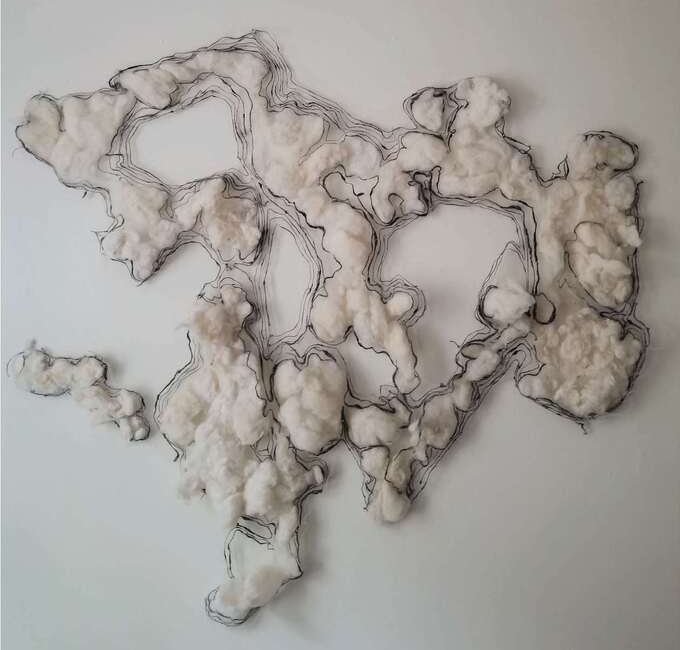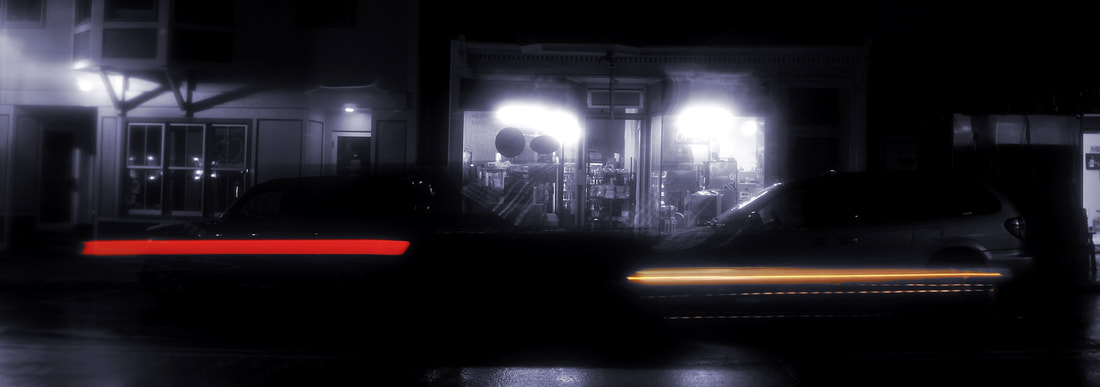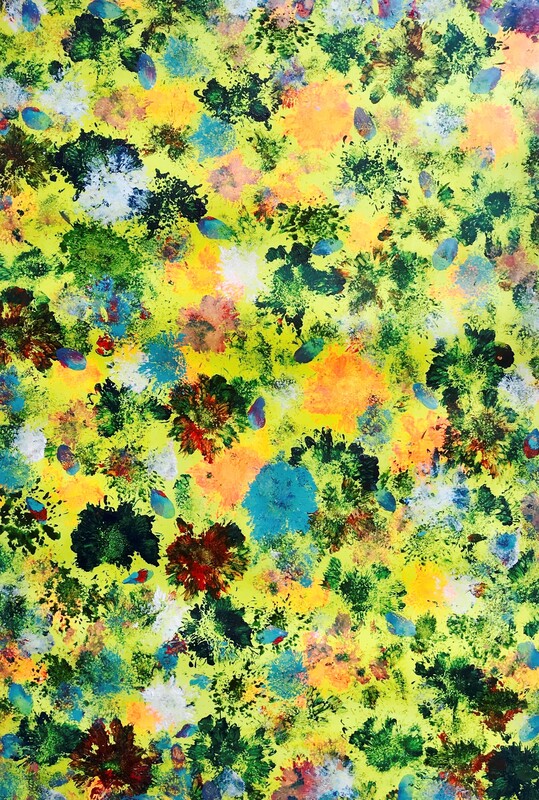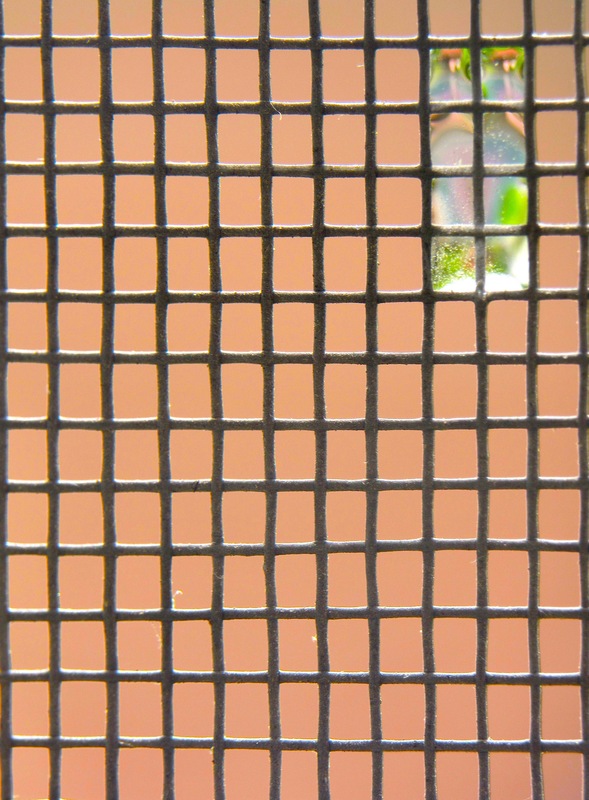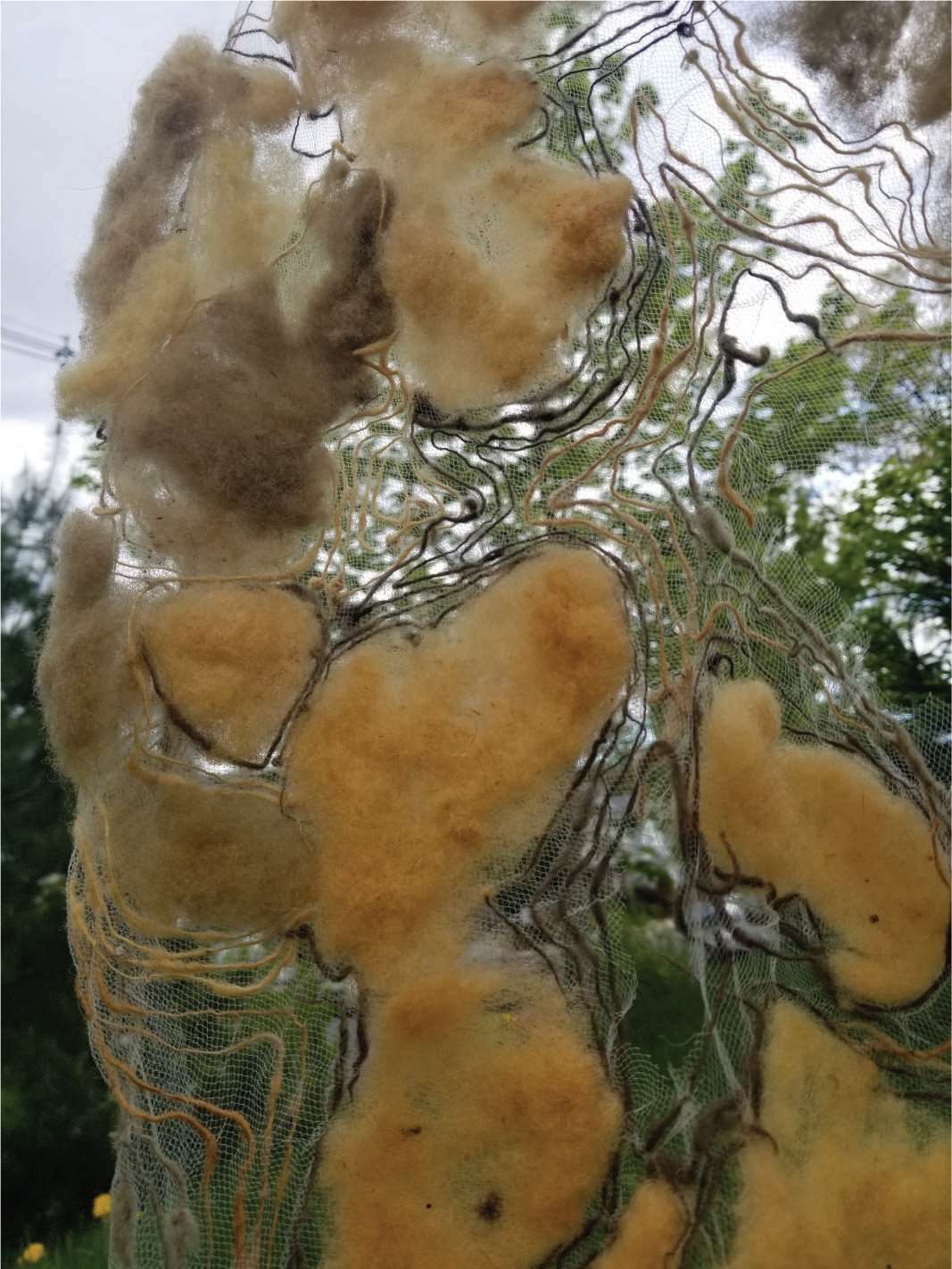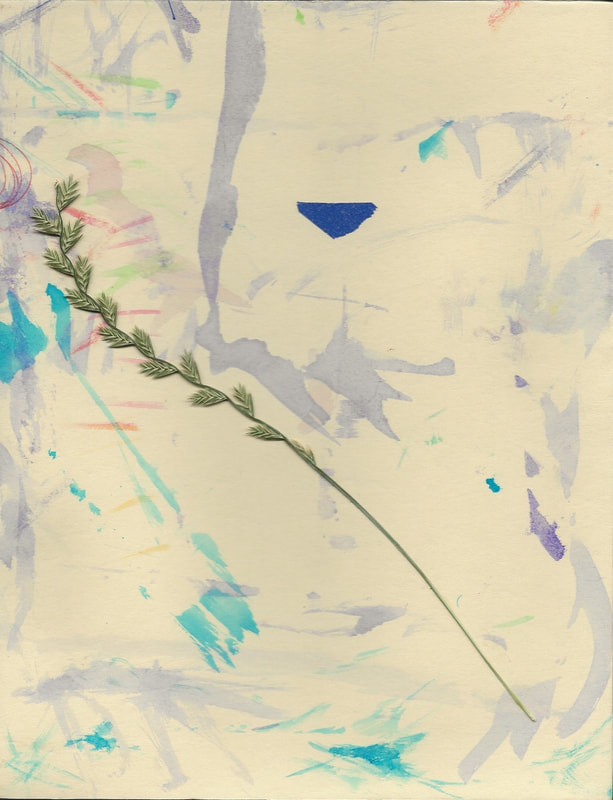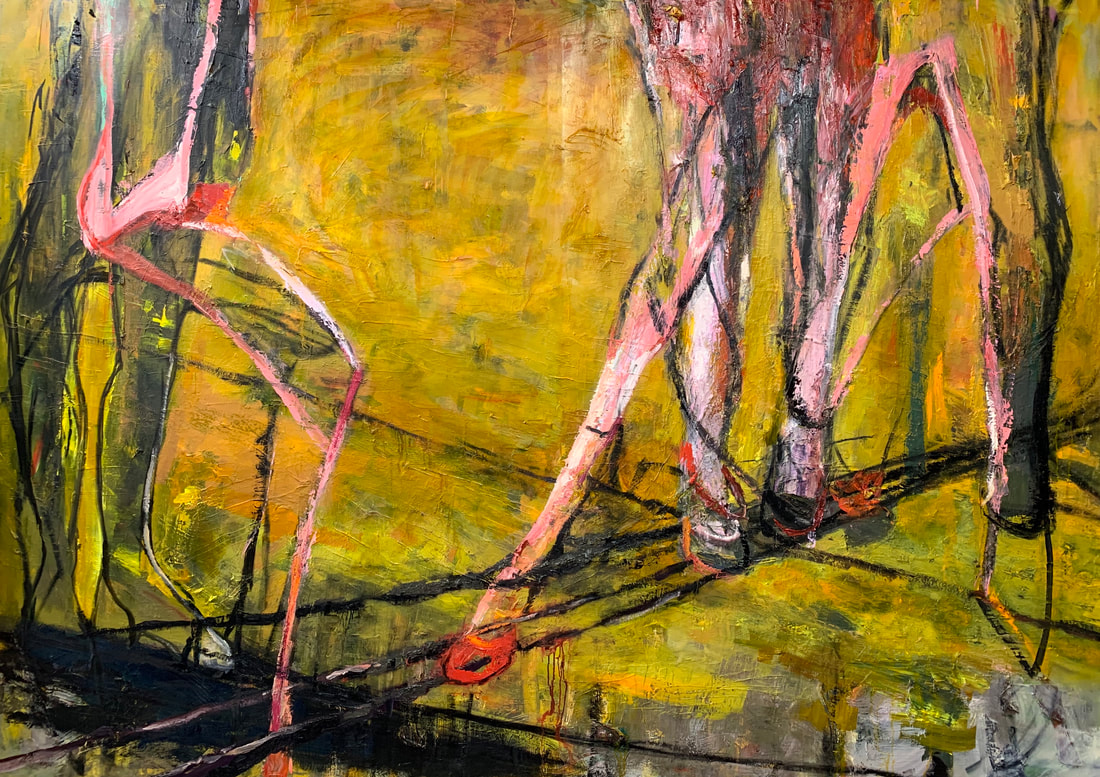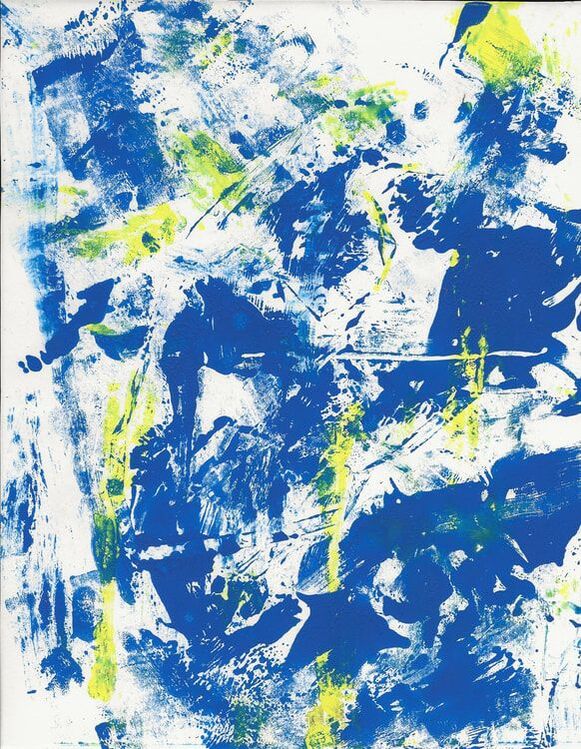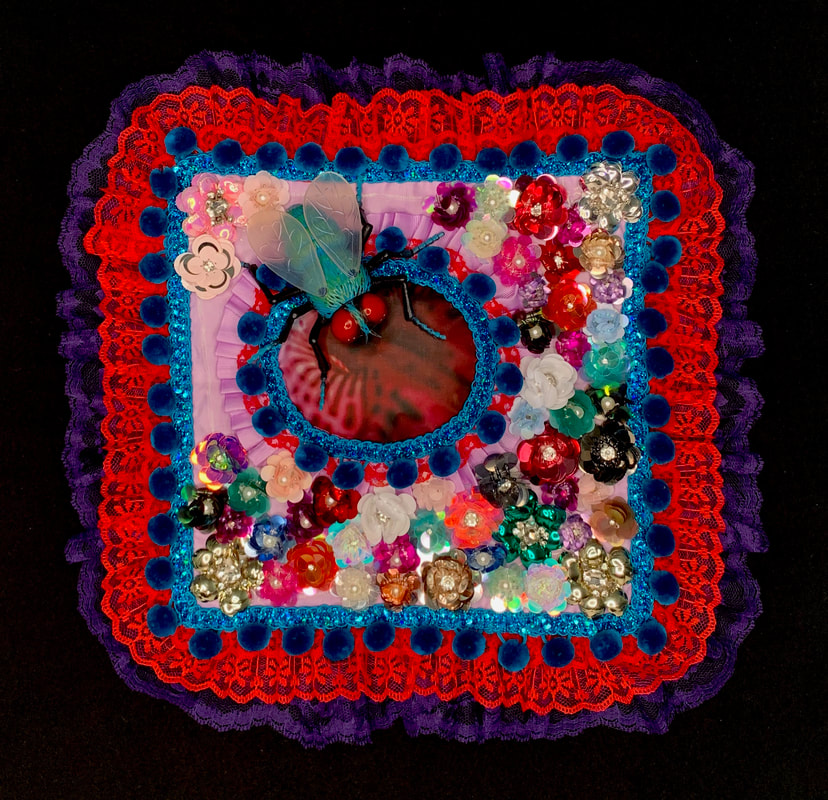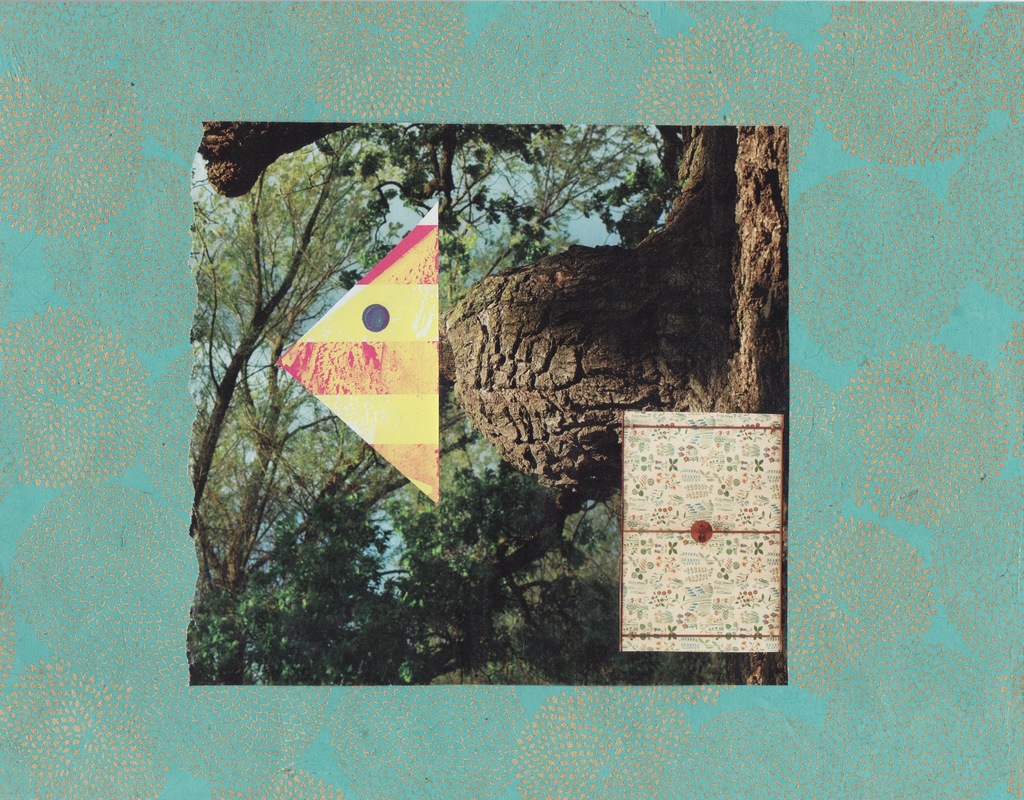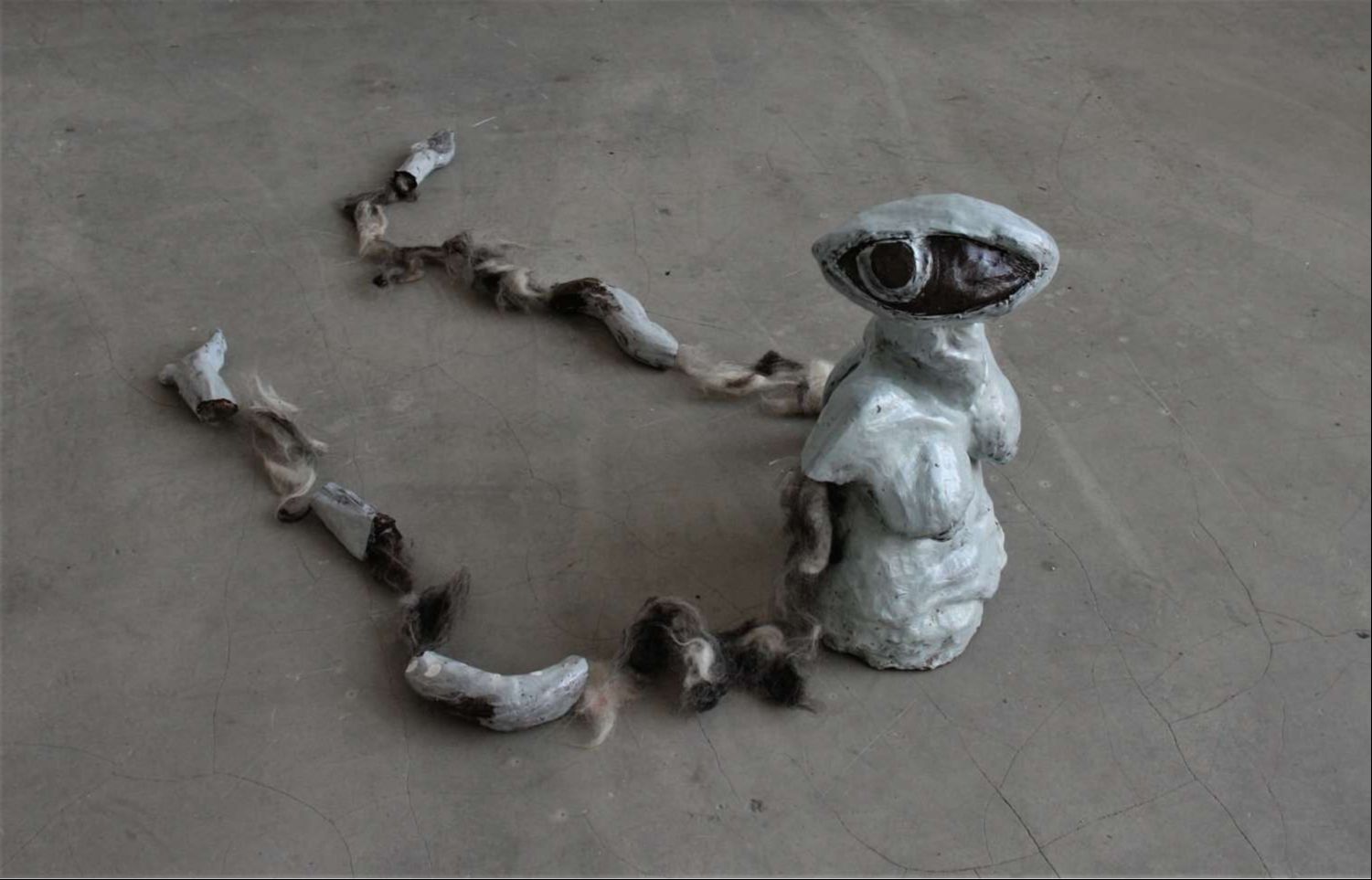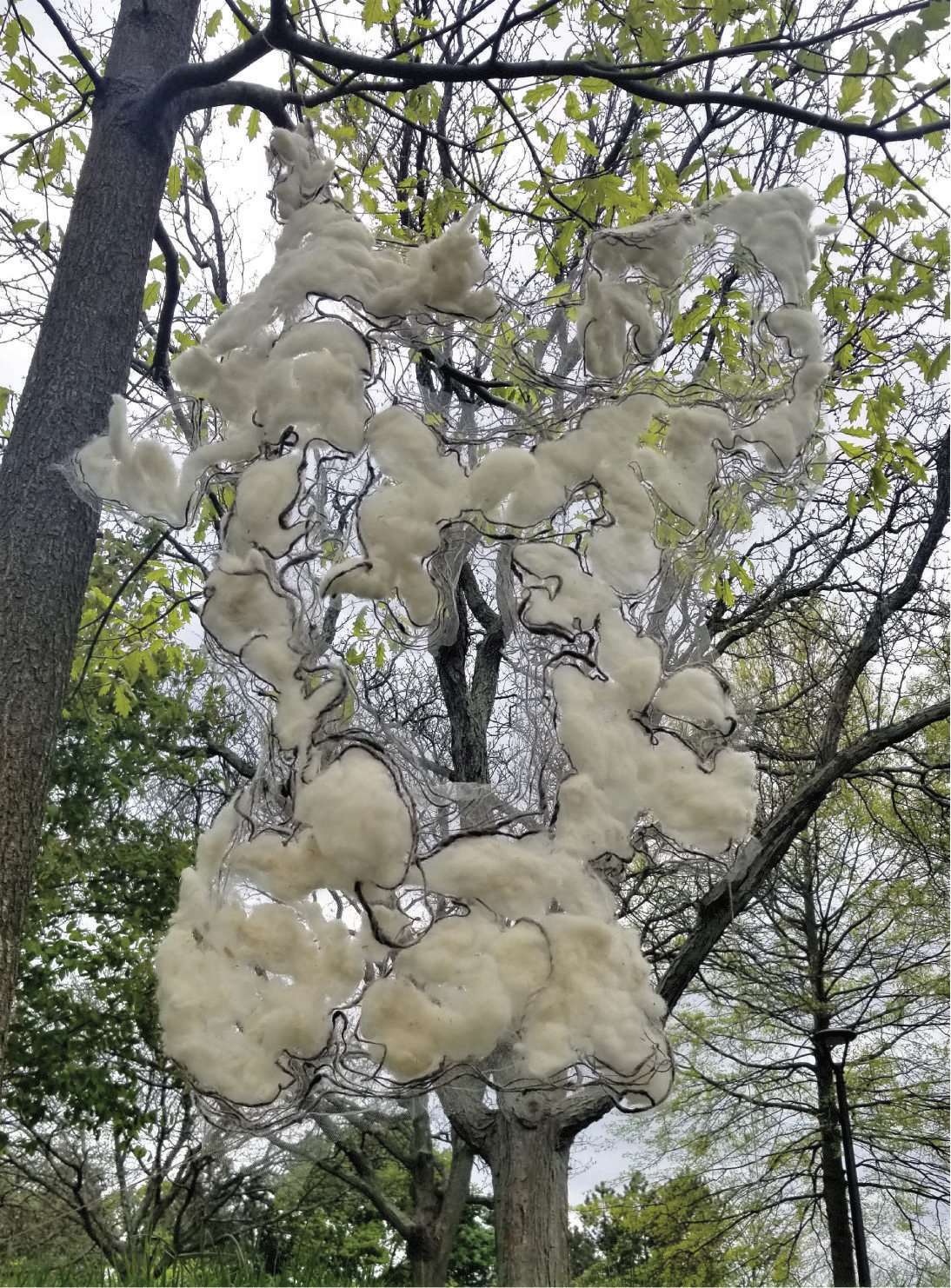|
Justin Lacour Sonnet (Till the seat covers fade) In this time, when “alternative prom” is merely a euphemism for work, and people cry when it snows in movies, I’m waiting for you to come hiking across the highways and scrub grass, looking for me. I have a concept of beauty predicated on loss, while yours is this weird sort of truth-telling meant to get us past the black lipstick phase, the trash can punch phase. We should exchange concepts of beauty like sleeping on each other’s side of the bed. In a room where dreams pass through osmosis, I want to wake up next to you, wrapped in your long, violent hair. Jocelyn Ulevicus In Transit There was not a single person in the park with me the instant the soul of my father came on the back of a flapping bird / the sort of detail that said your life is either about to begin or end, like pulling sap, metal to bone, the atomization of the body, change / can come in many forms like the black and white tube of my father’s chapstick and his dry and cracked knuckles holding back, pointing the gun / not at me but at my mother, he said, he didn’t shoot / yet the sympathy of some things remain eternal like / how each leaf is an individual, curly, drying, catching light / the oak are perfect when you see them, rooted in time to wag and sway the violence in my body / the world is alive, so am I, sometimes I forget it without a map or a lead to locate the color of want, the pinked edge of the waning moon, the silver and purple twilight on the tip of my tongue / without being aware, I am in the process of becoming / and then everything fell out of me watery and pale, the want to be transformed into something subtle and seething and wild / I am in transit, a transition not complete but suspended, a mineral womb swollen with worship, vegetal and heavy: there were times my tough-guy but also funny and loving father held his fist to me, a part of me wanted him to use it, to hit me, wanting to see exactly what he was made of / the time we try to make things last that we want to come to an end, I keep remembering that the heart is the size of a human fist, and so I dig my feet into the ground and wait / for the comfort we feel at the sight of ourselves in someone else, as one would encountering the petrified and the fibered. you find the light by stumbling upon it randomly as the hard lines of Manhattan were replaced by the pastoral, I was struck with a particular, unsettled feeling that I couldn't name. I once read a story about a woman who saw 100 times more colors than the average person, there was even a name for this condition, tetra-chromate, she was a tetra-chromate, and I wondered who I was, and what I felt, as I squinted my eyes out at the passing Hudson Valley. The essential unknowability of myself felt acute: there was a life that wanted to live through me, though I I didn’t know how to access it, I didn’t know I could / I read somewhere that commitment should come from the spectator—the people within are already involved / to be named, you have to believe in progress/ so I reached down into my shirt to touch my left breast, and imagined I was someone else. Kat Bodrie Deep Sea Blues At this depth, light does not penetrate color. The sky is unimaginable. Listen, can you hear the solitude? All I wanted was a place to sleep for a while. Enough time passes and you don’t know which way is up or down. How to get out? Maybe life is out there. Maybe not. But poetry, and stillness. I take my heads and shake them. No. Like dolls. They split into fathomable rainbows. Behold: A light inside the skeletons of whales. Ovaries dance and tremble. Why now? Charles Kell Lost Letter It drifted from the back window into a field of poppies. I am drunk now, again, on gin, thinking about how poor & happy I was back then. How the shack I lived in adjusted to each contour of my sharply shaped body. Who would walk in Spanish circles at the foot of a dry creek bed, balancing breath over a precipice? See the finches fly from my skin. Who else would let you tell him, over & over, how to begin? I love how this cold tin cup feels in my hand. Lucky’s Dance Caught again in the net-- arms contort at bone breaking angles, legs splay to catch the last shift of dust on the edge of Berlin’s Hermannplatz, where smoke from a burning garbage can blocks our vision—what a desiccated linden, what skill to sidestep withdrawal, to use the moon’s sliver of light as a fluorescent closet strewn with plastic bags, smell of burnt foil, where the red radish in the shape of a gun droops from a split coat pocket-- look in the mirror at a queen’s smeared makeup. His liver bulges a hive of bloated wasps. Her dress is smudged with small brown spots. Their fingers sticky, leaving prints on the mirror, the lawn, the rotary phone. We wait in the garden for the bomb. Emily Antrilli The Hillside Inn The motel didn’t have a kitchen just a pint-sized coffee carafe packs of stale crackers lozenge drops in the night-side drawer next to a single condom Mother left three days before with talk of bringing sister and I a list of gourmet foods we couldn’t pronounce Leaning my head against the double bed I thought of Nonna’s tomato sauce cloves of garlic ground under a thick knife a hot bath of angel hair pasta leaking into the double wide sink The noodles were as thin as the sheets of skin I’d pull away from my nails on nights inside the room and I’d think less of Mother Room 315 a sort of empty inside my thinning gut the shot I saw Mother give herself to keep from striking fever I swore once I watched the double beds close in around my shoulders the plywood of the bed posts cut scrapes into into my aching cuticles I let sister suck on the small crumbs of Saltines thought of the way her shallow breaths matched the depth of the wooden spoon I’d used to stir gravy to pot Derek Thomas Dew Drink There was a small statue that I kicked over by accident and then again on purpose on the island where once a head was carried to make a lesser thing of fearing hope when I order a beer and hear the man say No sir, this is a keg of nails. Kintsugi The rind of sink born everywhere. A rib. The vending machine, and everywhere without one. / For most, almost all of it couldn’t be explained, but a little bit of it could and this was the same little bit that those few who could explain almost all of it puzzled over. / Ever since, I wasn’t born anywhere. There’s even a plaque and a lawn. The Landholder I somehow keep waking in your morning lambs in your urn until clavichord wraps the last piece of apple on the end of my fork and coffee is everyone. Cloistering a forever in a driver’s license takes time. Your father did good at the track, so there’ll be a hotel. Your sister won’t sleep until you talk of helium and Ireland. Chariot makers in the coffee. Chariots in the coffee drive-thru. The last to travel did so to read aloud. The last to read aloud did so anyway. Faith is sustained eye contact with the deer that left a moment ago. Slipping a Ford pickup through a gate of deer takes faith. No raven will land. Cú Chulainn has turned down the dog meat, stepped over the tide. And so I keep waking out here in your morning lambs, sure of the cold that has groomed the last of me I have known and must learn to begin by laughing. K Janeschek Before You Wake You must imagine mother’s tongue in mildew. Her collarbone damp, her violin still—the strings taut with patience’s end. A pestilence settled in her bed of blades. The grass dripping its green hue onto yesterday’s brow. Dirt in her crow’s feet, a glean on their beaks. They peck at the pucker of her lips. You know they have not been fed. And they won’t be. Not until you mourn the chords of dawn coming over the hill. Josh Feit Blue Balcony In the shower, the blue plastic mat is a balcony. Look at the city. I can see where they’re building the new light rail station. I hope everyone can see. Certainly, not everyone is able to stand drunk in an apartment and sing a perfect rendition of Elvis Presley’s Heartbreak Hotel. The cell phone rings. “Elvis Presley here.” “Hello, Elvis Presley. This is Molly Ivins with the New York Times. I’m calling to write your obituary.” In the shower, the blue plastic mat is a balcony. I hope everyone can see. Joanna Acevedo Talks With God He said, no. He said, spare the rod and spoil the child. He grunted. He smoked a clove cigarette. Now I am getting used to the fireworks, but the gunshots wake me up at night. I am standing up to the firing squad. If you were an infection, what type would you be? I am seriously considering the guillotine. I am pondering the usefulness of the ball-gag. What is your favorite sort of weapon? Mine is your face, after it rains. I walk along the edge of a blade, trying to keep my balance. The cuts to my feet are shallow and bleed freely. When I talked to God, he said we should spend more quality time doing things we like to do, like playing chess, or sadomasochism. I am starting to learn discipline, one day at a time. I am loosening the straps. If you were a question, what kind would you be? Talks With The Devil I send you my address. But first, I try to nail the door shut. You ask me about my desires; I hate that you can see through my bullshit. Who would we be without our secrets? Autobiography. Auto-erotics. I hold the Devil in one hand. He looks over my shoulder. He says, yes. He says, open yourself up. I am looking for new experiences. I am trying not to panic. You are returning, slowly, like a woman coming out of sleep. Now I am branding myself, I am trying to leave a scar. These welts are all I have left. They say the Devil is in the details. I see him in your cheekbones and chin. I see him in your voice, whiskey-hoarse, coming at me from across state lines. Now I am crushing angels in my palms. I am working with the mortar and pestle, grinding myself down into powder. I am applying for sainthood. I am at your mercy. Given the chance, would you swallow me whole? You know me too well, or not at all. I have chosen this fate. I have designated these consequences. I am turning the gun on myself. Marcia Arrieta I Stumble on a Pebble falcon poppy adrift the island & the boat the pieces are glued onto an old map bear lion indeterminate the bandage needs changing the wound heals there are many doors in a house books journals photos crumpled papers small drawings sustain Shelby Pinkham To Haunt A House from Across the Valley You see me everywhere you look in a house I never lived in. Lacerated my thumb attempting to pierce flesh of an early girl, slandered your savior’s name as I wrapped it. 158 miles away, you hear my laughter nestled in a gob of coffee. My dead skin cells collect between the sheets of your bed. Apple cores I try to throw out plant themselves between your teeth. At three am you see my shadow rifling through the medicine cabinet. You have convinced yourself that I can walk through walls, all the while I find it harder to move through open doors. Elizabeth Galoozis Quarantine Poem #1 They use machines to travel everywhere. Every son and daughter has their own. Something is always going that needs to be charged. The horizon has been sold. It folds on itself a little later each night. They explain they need the capital to keep flowing. Explain the hole they made to extract money and throw in bodies. Hope is a green paper bird, folded and passed from hand to hand. The hole shrinks, and then expands. The horizon has been sold. Erica Lane Big Trees At Sequoia, I find the largest tree I can with you and wrap myself around its wrinkled shirt. I wish I had bark arms so that I could love you without jealousy, no briny thing plucking baby hairs from my wrists and arranging them in new patterns on the back of my pillow-kinked neck. I’m not the touchy feely type but I think we should set ourselves on fire to become fertile, then spend an entire lifetime only growing one thing. I can learn patience this way, like you can prune basil just enough to leave a stalk that covets hands. I want to live for 3,000 years beside you, mammoth and inarticulate, until our trunks are so big they block the road. |
Clouded Mind, Amber Mooers. Needle-felted and handspun wool.
Elemental Night, George Stein. Photograph.
A Woman in Bloom, Jocelyn Ulevicus. Acrylic on paper.
After The Rain, Derek Thomas Dew. Photograph.
Natural Boundaries, Amber Mooers. Naturally dyed needle-felted and handspun wool.
Marcia Arrieta
My Addictions, Emily Halpern. Oil paint on linen.
Marcia Arrieta
Unfinished Battles, K. Johnson Bowles. Mixed media assemblage.
Marcia Arrieta
Lady of Remorse, Amber Mooers. Soda fired terra cotta, wool.
Clouded Mind (Alternate View), Amber Mooers. Needle-felted and handspun wool.
|
contributors
Amber Mooers has always found herself making work that creates a sense of discomfort in the viewer. Manipulating familiar forms or materials into unsettling objects, she hopes to inspire people to think beyond their own habituated understandings of the world. Installations and wall hangings are a key component of her practice, as is exploring mixed media and fibers work to emphasize the ethereal nature of her pieces. @amberceleste.artwork
Justin Lacour has had poems in Bayou Magazine, New Orleans Review (Web Features), B O DY, and other journals. He edits Trampoline: A Journal of Poetry.
Kat Bodrie is a professional and creative writer in North Carolina. Her prose and poetry have been published in Waymark: Voices of the Valley, West Texas Literary Review, Rat's Ass Review, and other publications. Learn more at katbodrie.com.
Charles Kell is the author of Cage of Lit Glass, chosen by Kimiko Hahn for the 2018 Autumn House Press Poetry Prize.
Emily R. Antrilli is a confessional poet currently living in South Philadelphia. She is a recent graduate from Arcadia University’s MFA in Creative Writing program. She serves as an art and poetry editor for Arcadia’s MFA Literary Journal, Marathon. Her work can be seen in The Esthetic Apostle and Passenger. Her poetry underlines the intricacies of mental illness through personal narrative.
Derek Thomas Dew’s debut collection of poetry, Riddle Field, received the Test Site Poetry Prize and is out October 2020 from University of Nevada Press. His literary work has appeared in a number of anthologies, and his poetry has been published in a variety of journals, including Interim, Twyckenham Notes, The Maynard, The Curator, Two Hawks Quarterly, Tempered Runes Press, and Hawaii Pacific Review. He is a winner of an Oregon Opportunity Grant and an Omnidawn Publishing Workshop Scholarship. He currently lives in Oregon.
Jocelyn M. Ulevicus has a background in social work, psychology, and public health. Both her written and artwork is either forthcoming or published in magazines such as Hold in the Head Review, The Journal of Compressed Creative Arts, Dewdrop, Oscilloscope, and Entropy Magazine. Ms. Ulevicus currently resides in Amsterdam and is finalizing her first book, a memoir titled The Birth of A Tree, which was recently shortlisted for the Santa Fe Writer's Program 2019 Literary Award, judged by Carmen Maria Machado. In her spare time, she hunts for truth and beauty, and her artwork can be viewed @beautystills on Instagram.
Josh Feit is the speechwriter for the Puget Sound’s regional transit agency. Prior to that, he worked as a city hall reporter. Feit's poems have been published in Spillway, CircleShow, Lily Poetry Review (prize winner) and High Shelf, among other journals.
Joanna Acevedo is a writer living and working in New York City. Her work has been seen in Track Four, Mikrokosmos, and Not Very Quiet, among others. She teaches creative writing at New York University.
Marcia Arrieta’s recent poetry collections include vestiges ( Dancing Girl 2019) and perimeter homespun (BlazeVOX 2019). Her work appears in Otis Nebula, Otoliths, Word For/Word, Hobart, Cloudbank, South Dakota Review, Tiger Moth, Angel City Review, Anastamos, & Whiskey Island, among others. She edits and publishes Indefinite Space, a poetry/art journal.
K Janeschek is a non-binary writer originally from the Midwest. Their work has appeared or is forthcoming in The Swamp Literary Magazine, Split Rock Review, Hawai’i Pacific Review, BAX 2014, and has won Hopwood awards in both poetry and nonfiction.
Shelby Pinkham is a queer, Chicanx poet who has called three Central Valley cities her home: Bakersfield, Stockton, and now Fresno. She has served as an assistant editor for The Normal School literary magazine, as an assistant editor for Rabid Oak, and as an editorial assistant for the Philip Levine Prize for Poetry book contest. In her last spring as a lit student, Shelby won second place in the Stafford Betty Creative Writing Awards for her original poem about abortion in the aftermath of apocalypse. She currently studies poetry as a second-year MFA student at Fresno State.
Elizabeth Galoozis is a poet and librarian living in Los Angeles. Her poetry has been published in Faultline, Mantis, Meat for Tea: The Valley Review, Not Very Quiet, Sinister Wisdom, and Wild Roof Journal. Her poem "The Grove" was a finalist for the Inverted Syntax Sublingua Prize for Poetry. Her scholarly work has been published in The Library Quarterly, College & Research Libraries, and ACRL Press.
Emily Halpern is an artist from Canada living and working in an artist community in downtown Los Angeles. Her work reflects a disjointed sense of unease in an unpredictable world. She aspires to create work that deepens our understanding of the ways in which certain personal meanings reflect the complex matrix of universally shared emotions.
K. Johnson Bowles has exhibited in more than 80 solo and group exhibitions nationally. Feature articles, essays, and reviews of her work have appeared in more than 30 publications. She is the recipient of fellowships from National Endowment for the Arts, Houston Center for Photography, Virginia Center for the Creative Arts, and the Visual Studies Workshop. In 2020 more than 45 works from her most recent body of work, Veronica’s Cloths, have been selected for publication in 24 art and literary journals across the US including the American Journal of Poetry among others. She received her MFA in photography and painting from Ohio University and BFA in painting from Boston University. www.kjohnsonbowlesart.com.
George Stein is a digital photographer and editor in search of interesting juxtapositions and notable contrasts. He has been previously published in NUNUM, Prometheus Dreaming, the Toho Journal, and Passengers Journal, among others.
Erica Lane, Editor.
Published August 14, 2020.
Justin Lacour has had poems in Bayou Magazine, New Orleans Review (Web Features), B O DY, and other journals. He edits Trampoline: A Journal of Poetry.
Kat Bodrie is a professional and creative writer in North Carolina. Her prose and poetry have been published in Waymark: Voices of the Valley, West Texas Literary Review, Rat's Ass Review, and other publications. Learn more at katbodrie.com.
Charles Kell is the author of Cage of Lit Glass, chosen by Kimiko Hahn for the 2018 Autumn House Press Poetry Prize.
Emily R. Antrilli is a confessional poet currently living in South Philadelphia. She is a recent graduate from Arcadia University’s MFA in Creative Writing program. She serves as an art and poetry editor for Arcadia’s MFA Literary Journal, Marathon. Her work can be seen in The Esthetic Apostle and Passenger. Her poetry underlines the intricacies of mental illness through personal narrative.
Derek Thomas Dew’s debut collection of poetry, Riddle Field, received the Test Site Poetry Prize and is out October 2020 from University of Nevada Press. His literary work has appeared in a number of anthologies, and his poetry has been published in a variety of journals, including Interim, Twyckenham Notes, The Maynard, The Curator, Two Hawks Quarterly, Tempered Runes Press, and Hawaii Pacific Review. He is a winner of an Oregon Opportunity Grant and an Omnidawn Publishing Workshop Scholarship. He currently lives in Oregon.
Jocelyn M. Ulevicus has a background in social work, psychology, and public health. Both her written and artwork is either forthcoming or published in magazines such as Hold in the Head Review, The Journal of Compressed Creative Arts, Dewdrop, Oscilloscope, and Entropy Magazine. Ms. Ulevicus currently resides in Amsterdam and is finalizing her first book, a memoir titled The Birth of A Tree, which was recently shortlisted for the Santa Fe Writer's Program 2019 Literary Award, judged by Carmen Maria Machado. In her spare time, she hunts for truth and beauty, and her artwork can be viewed @beautystills on Instagram.
Josh Feit is the speechwriter for the Puget Sound’s regional transit agency. Prior to that, he worked as a city hall reporter. Feit's poems have been published in Spillway, CircleShow, Lily Poetry Review (prize winner) and High Shelf, among other journals.
Joanna Acevedo is a writer living and working in New York City. Her work has been seen in Track Four, Mikrokosmos, and Not Very Quiet, among others. She teaches creative writing at New York University.
Marcia Arrieta’s recent poetry collections include vestiges ( Dancing Girl 2019) and perimeter homespun (BlazeVOX 2019). Her work appears in Otis Nebula, Otoliths, Word For/Word, Hobart, Cloudbank, South Dakota Review, Tiger Moth, Angel City Review, Anastamos, & Whiskey Island, among others. She edits and publishes Indefinite Space, a poetry/art journal.
K Janeschek is a non-binary writer originally from the Midwest. Their work has appeared or is forthcoming in The Swamp Literary Magazine, Split Rock Review, Hawai’i Pacific Review, BAX 2014, and has won Hopwood awards in both poetry and nonfiction.
Shelby Pinkham is a queer, Chicanx poet who has called three Central Valley cities her home: Bakersfield, Stockton, and now Fresno. She has served as an assistant editor for The Normal School literary magazine, as an assistant editor for Rabid Oak, and as an editorial assistant for the Philip Levine Prize for Poetry book contest. In her last spring as a lit student, Shelby won second place in the Stafford Betty Creative Writing Awards for her original poem about abortion in the aftermath of apocalypse. She currently studies poetry as a second-year MFA student at Fresno State.
Elizabeth Galoozis is a poet and librarian living in Los Angeles. Her poetry has been published in Faultline, Mantis, Meat for Tea: The Valley Review, Not Very Quiet, Sinister Wisdom, and Wild Roof Journal. Her poem "The Grove" was a finalist for the Inverted Syntax Sublingua Prize for Poetry. Her scholarly work has been published in The Library Quarterly, College & Research Libraries, and ACRL Press.
Emily Halpern is an artist from Canada living and working in an artist community in downtown Los Angeles. Her work reflects a disjointed sense of unease in an unpredictable world. She aspires to create work that deepens our understanding of the ways in which certain personal meanings reflect the complex matrix of universally shared emotions.
K. Johnson Bowles has exhibited in more than 80 solo and group exhibitions nationally. Feature articles, essays, and reviews of her work have appeared in more than 30 publications. She is the recipient of fellowships from National Endowment for the Arts, Houston Center for Photography, Virginia Center for the Creative Arts, and the Visual Studies Workshop. In 2020 more than 45 works from her most recent body of work, Veronica’s Cloths, have been selected for publication in 24 art and literary journals across the US including the American Journal of Poetry among others. She received her MFA in photography and painting from Ohio University and BFA in painting from Boston University. www.kjohnsonbowlesart.com.
George Stein is a digital photographer and editor in search of interesting juxtapositions and notable contrasts. He has been previously published in NUNUM, Prometheus Dreaming, the Toho Journal, and Passengers Journal, among others.
Erica Lane, Editor.
Published August 14, 2020.
